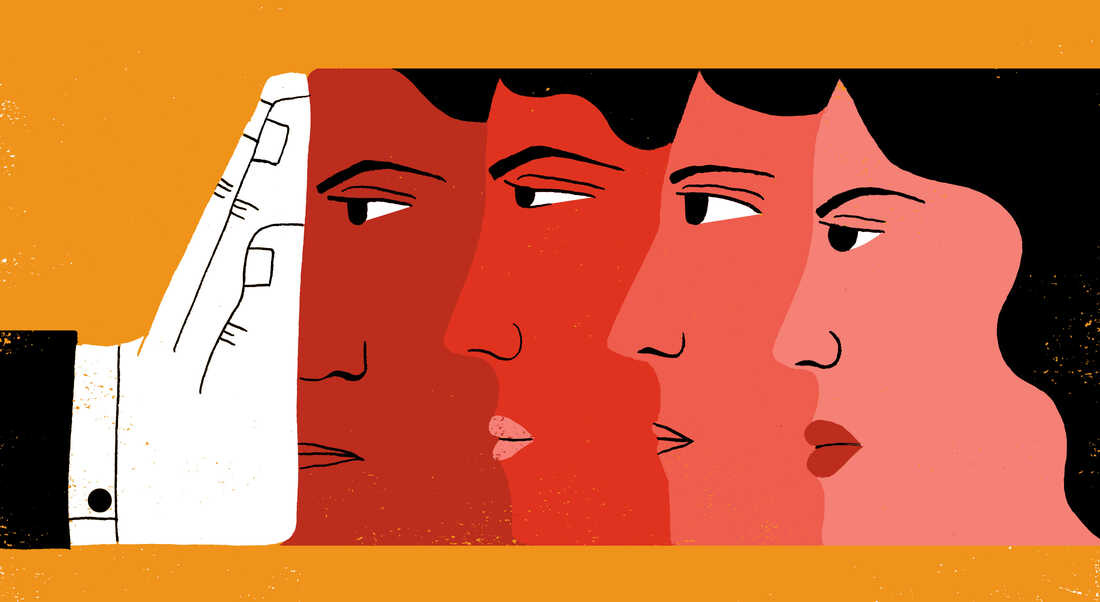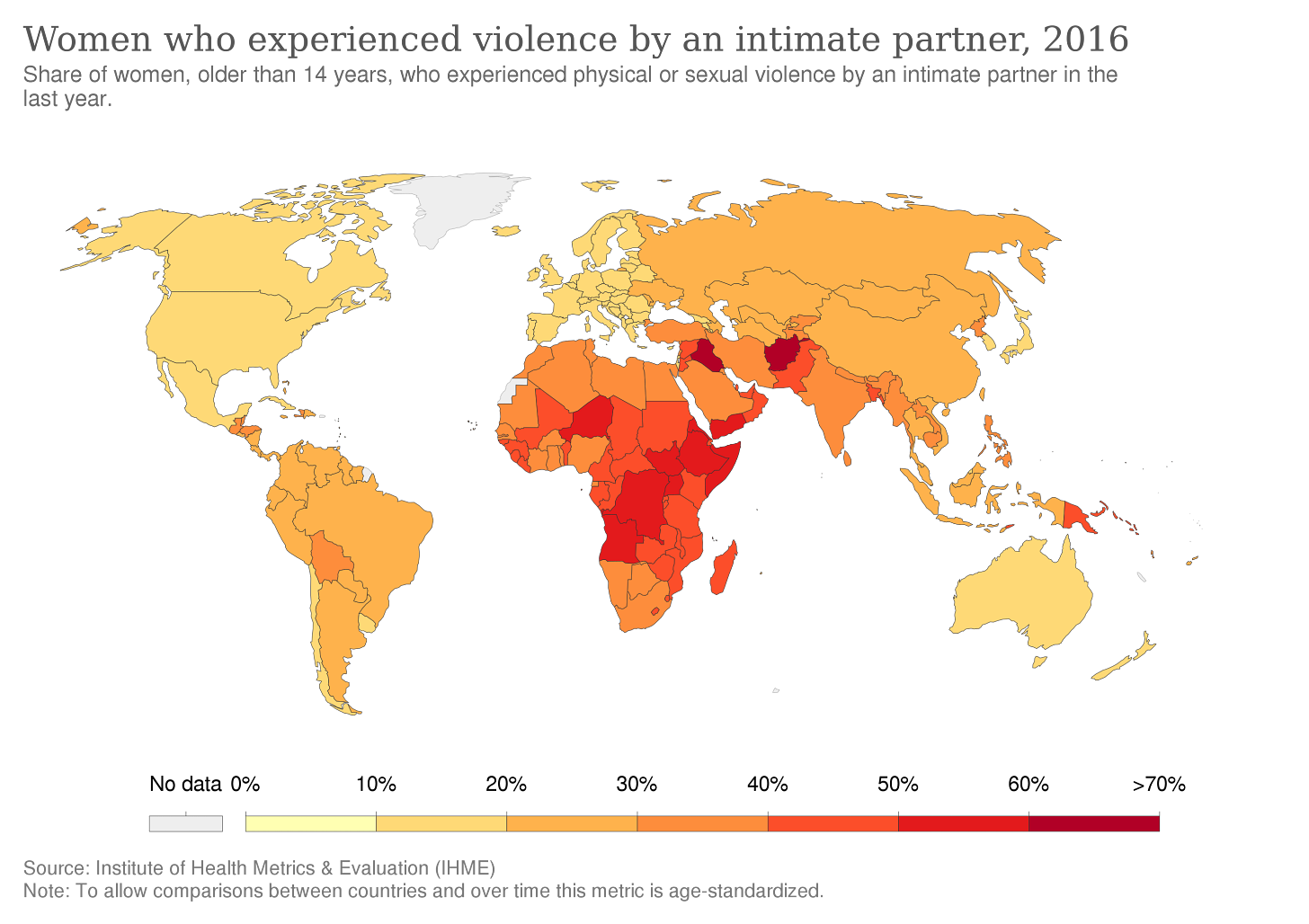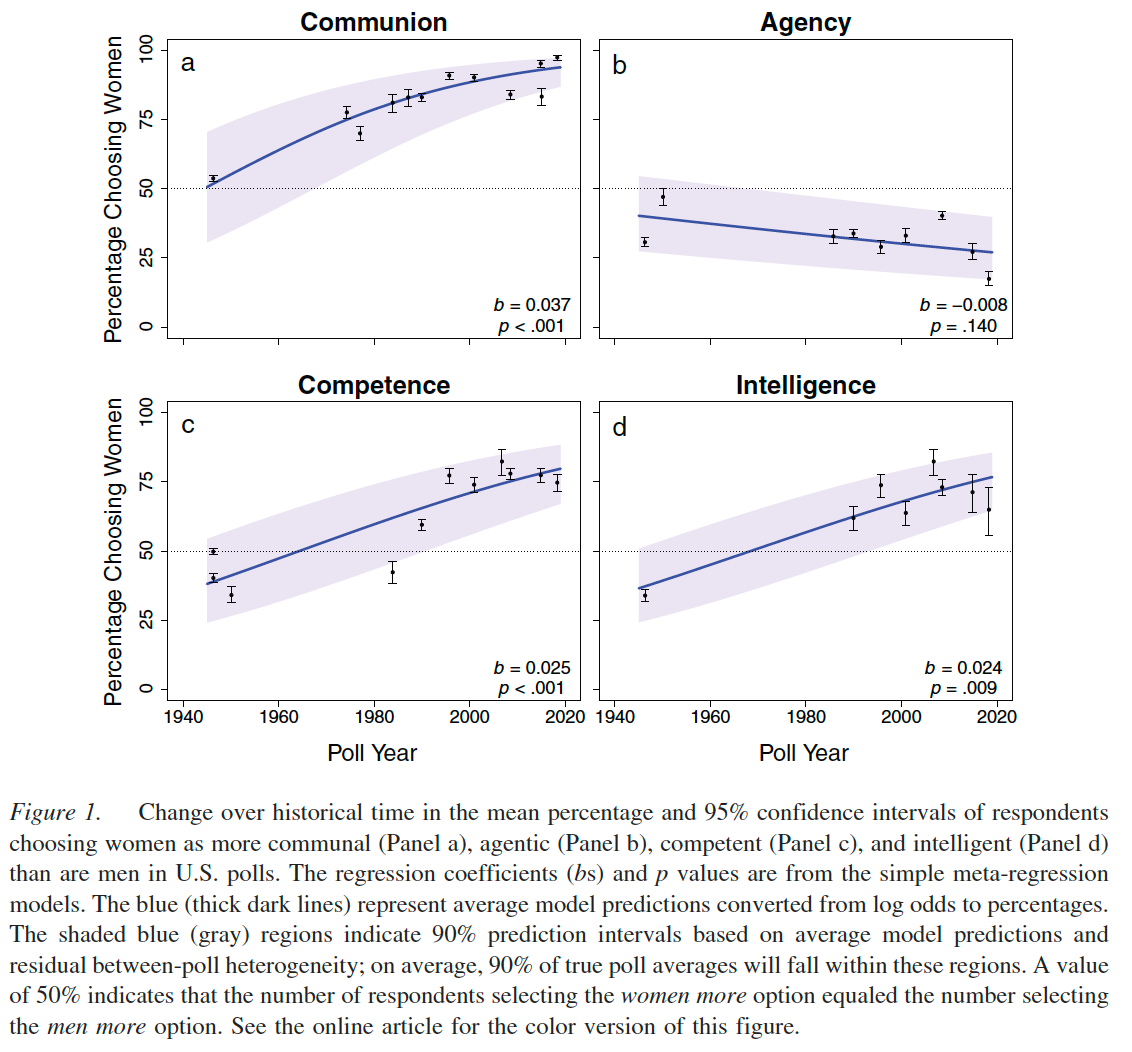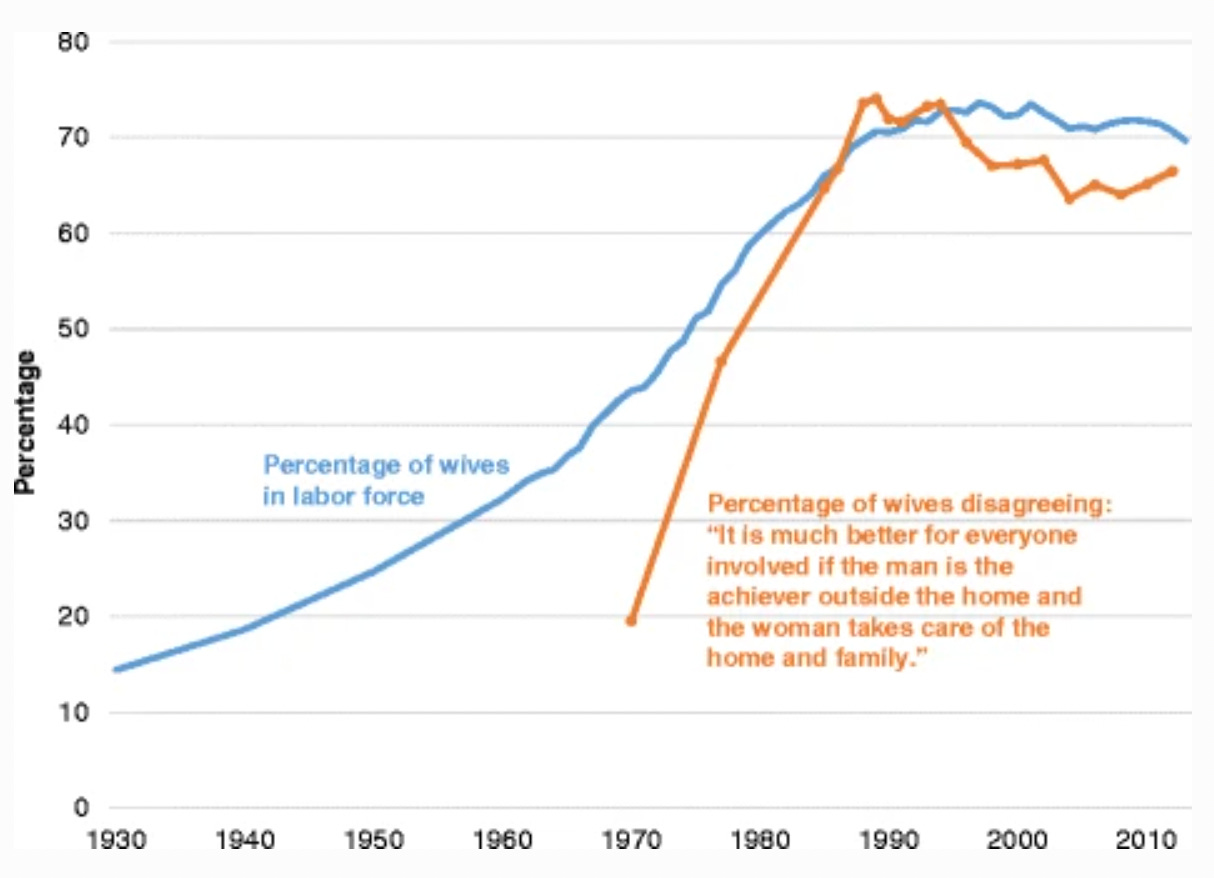The Decline of the Male Breadwinner and Persistence of the Female Carer
Why have gender gaps in education and employment closed rapidly, while intimate partner violence and unequal divisions of housework remain so persistent?
Prejudice and privilege are self-perpetuating. High-status individuals maintain institutions that serve their interests, enabling them to consolidate economic wealth and political power. Through media domination, they cast themselves as heroes. Low-status individuals seldom get the opportunity to challenge this narrative or demonstrate their equally valuable skills, so are forever denigrated. Bias thus remains entrenched. How might this change?
If you would rather listen than read, here’s the podcast on Rocking our Priors.
I suggest that bastions of inequality are quickly destroyed when they are seen as disadvantageous. Once the doors are opened and low-status individuals are permitted to make valuable contributions, they demonstrate equal competence and gain status. Building on this idea, I wish to explain why there can be rapid progress towards some dimensions of gender equality but not others.
Patriarchy is unlike all other inequalities because high and low-status individuals jointly raise children. They do so endogamously, within their own jati, ethnicity or religion. ‘Others’ remain outside the family. Hence there is far less potential for cross-cutting mutual advantage and inter-personal contact.
Under job-creating economic growth, husbands may welcome wives’ earnings as this can benefit their children. Seeing women demonstrate valued competencies, male family members iteratively come to reject gender stereotypes.
But households are by no means egalitarian utopias. They are the global epicentres of tyrannical despotism, exploitation and violence. 25% of US women have been slapped by an intimate partner. 1.3 million US women reported being raped by an intimate partner in the past year. Even among couples with similar earnings, the man does less housework and enjoys more leisure. Over in Germany, wives listen to their husbands but not vice versa. 30% of married Indian women have been beaten by their husband.
Why do family abuses persist with impunity? Elsewhere in the world, egalitarianism is maintained through ‘reverse dominance coalitions’. Ganging together in solidarity, they push for greater entitlements. Families are unique bastions of inequality because the low-status individual is alone. Tied by her children, she is reluctant to leave but lacks any allies to challenge the terms of her incorporation. The only option is - as the Bemba say - ‘ukushipikisha’ (to endure).
The net effect is that gender gaps in education and employment can close rapidly because these benefit children. In the absence of allies, however, unequal divisions of housework and intimate partner violence persist with impunity.
Female education and employment are increasingly seen as advantageous for child-rearing.
Male education rises with skill-biased technological change. Educated men then seek educated wives and invest in their daughters' schooling. Since men marry and raise children within their own nationality, ethnicity or jati, wealth is rarely inherited across these groups. Gender gaps in Indian education have thus fallen far more rapidly than those of caste or religion.
Female employment has soared in the US, Europe, Latin America and East Asia, because it is increasingly seen as financially beneficial. Over the 1970s, young American men saw their relative earnings plummet. Unlike their fathers, they could not provide single-handedly as breadwinners. Men then opened the doors, permitted women to undertake the socially valued role of household financial provision, because it would benefit their children. 77% of US adults now say that children are better off if both parents work. Countrywide, women now earn 39% of total earnings.


When I interviewed husbands of working wives in Mexico, Zambia and Cambodia, they likewise emphasise its material benefits. So too in Medieval England, men usually welcomed their wives’ labour force participation. Resistance actually came from other men, who did not want to be undercut, and thus formed exclusionary guilds to lock women out.
All families are sensitive to economic gains. However, some cultures put a greater premium on the afterlife, male honour or full-time motherhood. In these cases, female employment will only rise when competing preferences are dwarfed by available earnings. Alternatively, there may be a cultural shift such that younger generations become far more individualistic - as I observed in Mexico.
People gain status when they demonstrate valued competencies
Prejudice wanes when people collaborate in joint projects - as famously argued by Gordon Allport. Cecilia Ridgeway likewise argues that status is contingent on perceived competence at advancing shared goals. This theory has been widely replicated. When Indian cricket teams are randomised, people become less likely to favour their own jati. So too in South Africa, white students randomly assigned a black roommate are less likely to be racist.
In the real world, however, interactions are incredibly segregated - in terms of friendship networks, romantic partners, residential neighbourhoods, universities, and workplaces. In India, most people live alongside their own jati. They seldom raise children together. Allport’s mechanism of equality are thus obstructed.
What is the most common and sustained form of interpersonal contact between people of high and low-status? Not just for quick transactions but entire lifetimes?
Exposure, cooperation and empathy are especially strong within families
Strong, independent women are most closely observed by members of their own family. They act as role models, demonstrating the benefits of two earners. Sons of working mothers tend to be more egalitarian and have working wives. This has been observed in France, West Germany, Switzerland, Greece, Zambia and Mexico.
Emotional ties of compassion are typically strongest within families. Fathers (usually) love their daughters, gain pride in their achievements, and empathise with their struggles. So as low-status individuals make inroads into socially valued domains, their fathers are the first high status individuals to relish this achievement. An elderly carpet trader in Udaipur shared that his daughter has a lucrative job at a multinational; he beamed with delight! In US Congressional hearings, politicians with daughters were far less likely to interrupt Janet Yellen.
With prolonged exposure to myriad women demonstrating valued competencies, they are increasingly regarded as equally intelligent and deserving of status. Inequalities wither. This is precisely what’s occurred in the USA.
Very few Americans now say that ‘a woman’s place in the home’.
Through these same processes, the entire world has become more gender equal. On the Zambian Copperbelt, a housewife used to be derided as “ukwikala” (just sitting). But when copper prices tumbled, factories closed and HIV/AIDS destroyed lives, women rushed to the labour market and eventually became valued providers. “Women can do what men can do”, they chorus (translated).
Matthew (once a miner, now an emaciated vegetable trader) used to think ‘a woman is lower than the man’. Depending on male breadwinners, women were ‘relaxed, expectant and lax’, preoccupying themselves with ‘small issues’. The problem was their ‘mind-set’.
After Matthew lost his job, they sank into terrible poverty. His wife started selling sardines. Her mind ‘broadened’, she initiated ideas and now they make decisions together. More broadly, Matthew observes women ‘standing up to fight and solve problems as equals’. ‘I had to change, for the betterment; it was changing me to be a better man’ (translated).
So let me summarise.
High-status individuals are most open to reform when it advances their interests.
Child-rearing is a widespread priority. Families are thus the primary sites of inheritance, cooperation and love.
With skill-biased technological change and job-creating economic growth, men increasingly regard their wives’ education and employment as advantageous.
Prolonged exposure to low-status individuals demonstrating their equal competence in valued domains erodes prejudice.
This is most closely observed and cherished within families.
Gender gaps in education, employment and prejudice can thus close rapidly.
Reverse dominance coalitions are key for egalitarianism
Thus far I have discussed cases in which high-status individuals genuinely want to dismantle hierarchies - due to perceived self-interest or belief in equality.
But what if they don’t?
‘Reverse dominance coalitions’ are a powerful mechanism of egalitarianism. Foragers mocked, ridiculed, bullied, and berated self-aggrandising ‘upstarts’ who sought to accumulate resources, sarcastically calling them ‘Big Chief’. In the Kalahari, the one influential !Kung San explained,
When a young man kills much meat, he comes to think of himself as a chief or a big man, and he thinks of the rest of us as his servants or inferiors. We can’t accept this. We refuse one who boasts, for someday his pride will make him kill somebody. So we always speak of his meat as worthless. In this way we cool his heart and make him gentle.
If the upstart does not relent, he may be punished with ostracism or even death.
‘Reverse dominance coalitions’ are a universal driver of liberty, democracy and equality. Back in the 1970s, Korean workers likewise forged class consciousness and fought for their rights. In Latin America more recently, marginalised people have mobilised en masse and politicised inequalities.
Social media can also enable reverse dominance coalitions. Collectively, low-status individuals can decry unfairness, belittle bullies, and reinforce each other’s arguments. By publicly berating manels and mansplaining, they cultivate a sense of righteous resistance. Onlookers realise that disrespect is no longer tolerated.

A wife is attached but alone, without allies.
Households have unique potential for tyrannical despotism because the low-status individual is deeply attached but without any allies. Reverse dominance coalitions are impossible. Concerned for her children’s survival and social reputation, she may be committed to stay, but it’s very hard to challenge the terms of that incorporation.
Across the world, sons grow up in homes where men are served food and treated with greater respect. They too anticipate female servitude. Denial is tantamount to disrespect. In the outskirts of Istanbul, Yusuf asked his wife Elif for a cup of tea. She refused, so he beat her to a pulp.
If a wife is economically dependent and fears ostracism upon divorce, her husband can subject her to brutal torture. In Karnataka (India), some men beat their wives to extract higher dowry payments. In Puebla (Mexico), José told me that his grandfather brought home his girlfriend and asked his wife to cook. When she refused, he shot her in the thigh. She remained married, hobbling on crutches. In Lusaka (Zambia), Thandiwe detailed that her husband used to rape her. He also defecated in bed because he delighted in the degradation of her washing the sheets by hand. Fatima (a 55 year old Arab cleaner from Midyat) was beaten by her husband’s entire family. She described life as being in a ‘cemetery’ (translated).
Young girls are equally vulnerable. Chrissy (15) approached me when I was observing ‘assertiveness training’ at her school in Kitwe (Zambia). Her uncle was a rapist; she had nowhere to go. Age 18, Dilnaz was seen with her boyfriend in the streets of Midyat (Turkey). Her father and brother beat her for two hours. Much like her cousin who was killed after eloping, she was punished for blackening their honour. Dilnaz feared her own family and was desperate to escape.
Over the past 13 years of research in Mexico, Morocco, Turkey, The Gambia, Zambia, India, Vietnam, and Cambodia, I have met many young women who are privately critical and bitterly resent sexist expectations. But resistance is difficult. Marriage and motherhood are expected, culturally celebrated and thereafter a woman may be alone.
Female solidarity is especially difficult in honour cultures, where women are secluded and have very few friends. Even if women can move freely, they may not necessarily trust each other as allies. Instead, they may eye each other as potential threats to their own precarious marriages. Open dissent may even be chastised. “La ropa sucia se lava en casa” explained my friend in Santa Maria la Ribera (Mexico). Dirty laundry should not be aired in public.
Seldom seeing accountability for male violence, victims become caught in what I call a ‘Despondency Trap’. Although Indian women’s legal rights exist on paper, they are rarely claimed and poorly enforced. Sexist and incapacitated, the criminal justice system rarely investigates allegations of assault. While Indian women stand a far better chance if they are accompanied by brokers (who lobby on their behalf), the overwhelming majority have no such allies.
The dearth of reverse dominance coalitions within the household may also explain why women continue to shoulder the lion’s share of the housework. While a woman may wish for help, she is reluctant to rock the boat. Let me share an exception which proves the rule. Cassandra and her family were watching “Wife Swap”. “They treat the wives like servants!”, decried her two teenage daughters. Throughout the TV programme, they kept expressing outrage, by mocking and belittling the patriarchs. Cassandra said nothing, neither did her husband. But over the following weeks her husband did more cooking and washing up than he had done in the course of their entire marriage. Cassandra was thrilled, she loved it, and told him so. Her daughters had formed a reverse dominance coalition.

Gender gaps in education and employment can thus close rapidly, while intimate partner violence and unequal divisions of labour remain entrenched.
To summarise,
Patriarchy is unlike all other inequalities because high and low-status individuals jointly raise children. This generates unique potential for cooperation, interpersonal contact and compassion, as well as abuse with impunity.
Husbands may - under conditions of skill-biased technological change and job-creating economic growth - come to see wives’ education and employment as advantageous.
As women demonstrate valued competencies, they gain status. Sons of working mothers tend to reject gender stereotypes.
Households are unique because the low-status individual is attached but alone, unable to build a reverse dominance coalition. Families thus have unparalleled impunity for sustained abuse.
[Names of participants have been changed to preserve anonymity].










Robin Hanson would say we are resistant to permit intrusion into domestic areas we regard as more intimate.
https://www.overcomingbias.com/p/what-is-personalhtml
His colleague Bryan Caplan would say men do little housework because they don't value it even when they reap the full benefits and have no one else to pick up their slack as bachelors:
https://www.econlib.org/archives/2008/01/how_can_guys_be.html